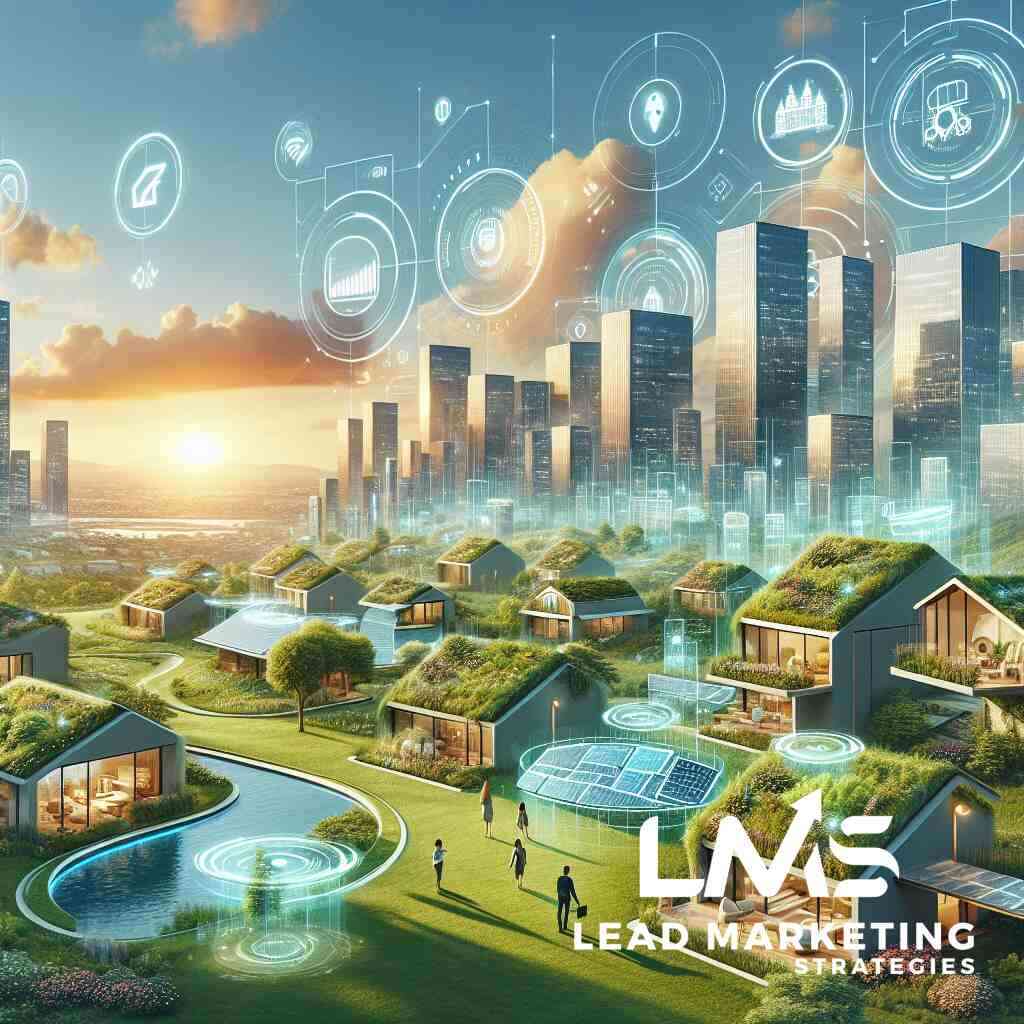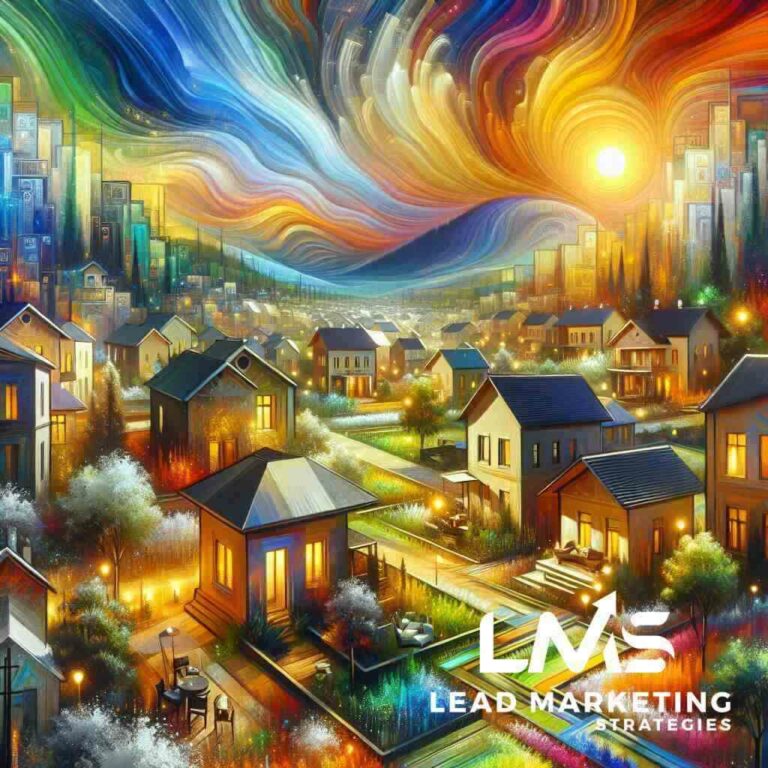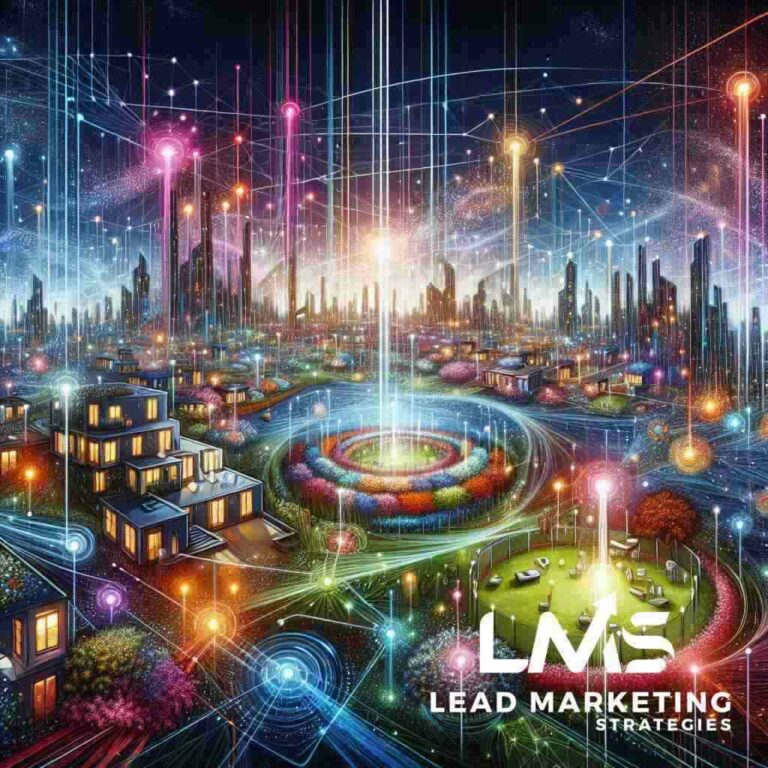Envisioning the Future of Real Estate Marketing
Decoding Real Estate Market Evolution
In 2025, the real estate market evolution is expected to reach unprecedented heights, driven by technological advancements and shifting consumer demands. The trajectory of these developments indicates a landscape where data analytics and digital platforms play pivotal roles. Real estate firms are progressively adopting new technologies to streamline processes and enhance user experience. This profound digital transformation is not just about keeping pace; it’s about redefining how we conceptualize property buying and selling in a rapidly changing market. As companies leverage cutting-edge tools and data-driven insights, they are better positioned to navigate this intricate network of evolving trends.
Predictive Analytics: Charting 2025 Property Trends
Predictive analytics revolutionizes how real estate professionals interpret market dynamics, providing foresight into 2025 property trends. Realtors can anticipate buyer behaviors and adjust their strategies by harnessing data analytics. This foresight ensures that marketing efforts are not only timely but also remarkably targeted, improving lead generation and conversion rates. As the industry embraces AI-driven insights and big data, the ability to foresee shifts becomes an invaluable asset. The integration of predictive analytics in real estate marketing bridges traditional techniques with a futuristic approach, fostering a seamless transition into a data-centric era.
Unlocking Future Real Estate Strategies: A Glimpse
The convergence of technology and innovation is unlocking new avenues for future real estate strategies. As the industry evolves, realtors and developers must rethink their approaches to engage with modern buyers effectively. With the integration of AI, VR, and IoT tools, real estate professionals can now offer personalized experiences that cater to specific buyer needs. This not only enhances customer satisfaction but also significantly boosts trust and engagement. From virtual tours to AI-enhanced customer interactions, the realm of possibilities in real estate marketing continues to expand. By tapping into these innovative strategies, companies can maintain a competitive edge and thrive in an increasingly complex environment.
Harnessing Digital Innovation in Real Estate
The Digital Transformation: Real Estate Tech Integration
In 2025, the transformation of real estate through technology integration is reshaping the landscape. The digital transformation in real estate is fostering innovation and efficiency, driving companies to adopt web development services that enhance Realtor web design and user experience. This shift signals an era where digital property listing marketing harnesses advanced tools, enhancing visibility and engagement. As firms incorporate these technologies, they successfully bridge gaps between traditional real estate marketing and the fast-paced digital realm. By prioritizing real estate tech integration, firms are prepared to adapt to market changes swiftly, ensuring that their real estate online marketing is both dynamic and effective.
AI-Powered Insights: The Future of Real Estate Marketing
Artificial intelligence in real estate marketing is becoming an indispensable tool by 2025, enabling professionals to glean unprecedented insights. By leveraging AI-driven analytics, real estate marketers can personalize property marketing for modern buyers, tailoring experiences that resonate deeply with consumer needs. These insights allow for robust market adaptation strategies, optimizing realtor SEO and streamlining lead generation processes. Real estate professionals who embrace AI can predict market trends more accurately, positioning themselves in a competitive field. Integrating AI in strategies fosters innovation and enhances the ability to meet and exceed buyer expectations, cementing a firm’s place as a leader in real estate advertising strategies.
Building Green: Sustainability in Real Estate
Sustainability in real estate is increasingly at the forefront, shaping development trends as buyers prioritize eco-friendly properties. This focus on sustainability mandates real estate firms to integrate greener practices and materials into their projects. Firms are now emphasizing energy-efficient solutions, which not only reduce environmental impact but also appeal to future homebuyer preferences.
Realtors adept at promoting these sustainable practices through property sales content marketing position themselves to attract environmentally conscious buyers, enhancing engagement and sales. By aligning with sustainability goals, real estate firms contribute to environmental preservation and tap into a growing market demographic that values ecological responsibility.
Virtual Reality: Revolutionizing Property Tours
Virtual reality property tours are revolutionizing how properties are showcased, offering potential buyers immersive experiences without physical boundaries. This advancement in real estate virtual tour marketing elevates the standard for property presentations, making it an essential tool for realtors aiming to captivate tech-savvy buyers.
These tours allow buyers to explore properties thoroughly, enhancing decision-making processes and client acquisition. By incorporating virtual reality into real estate strategies, firms can effectively expand their reach, offering a seamless blend of technology and personal interaction. This shift enhances property visibility and establishes a competitive edge by offering unique and engaging viewing experiences, setting a new standard in luxury home marketing.
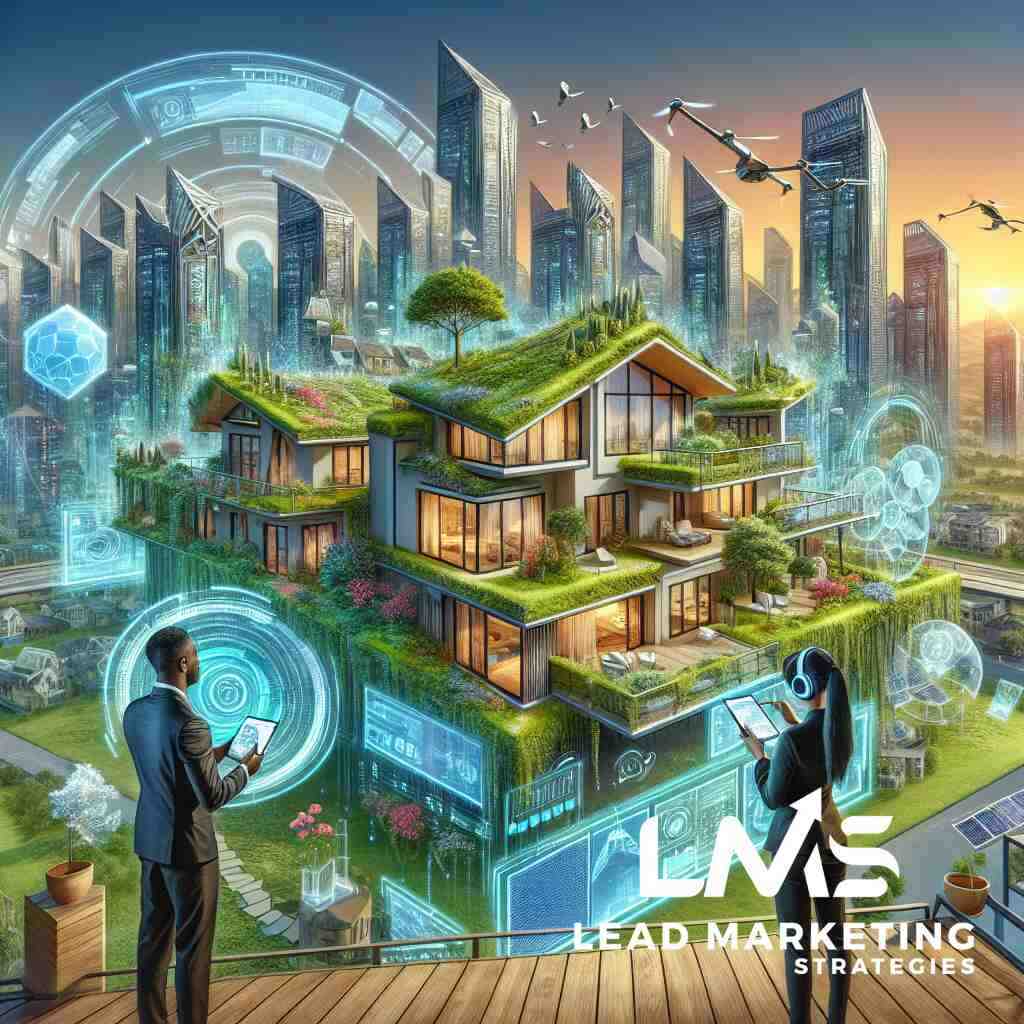
Adapting to New Consumer Paradigms
Decoding Future Homebuyer Preferences
As we approach 2025, future homebuyer preferences are shifting towards demand for smart homes and sustainable living. Buyers increasingly seek properties equipped with the latest smart technologies that enhance comfort, efficiency, and security. Additionally, eco-friendly features such as solar panels and energy-efficient appliances are essential considerations for prospective buyers focused on minimizing environmental impact.
These evolving preferences signify a transition in real estate marketing, where emphasizing technological and sustainable advancements becomes crucial. Understanding these shifts allows real estate professionals to align their strategies with market demands, ensuring their property marketing efforts effectively resonate with modern buyers.
Demographic Shifts: Cross-Generational Marketing Tactics
The dynamic landscape of real estate marketing is significantly impacted by demographic shifts in real estate, requiring cross-generational marketing tactics. As the population diversifies, real estate professionals must recognize the varying needs and preferences across generations. Millennials prioritize urban living and technological integration, whereas Baby Boomers may seek comfortable, low-maintenance properties for retirement.
By leveraging targeted marketing strategies, realtors can better anticipate and cater to these varied interests. Crafting messages and experiences that appeal to different age groups ensures a more comprehensive reach, ultimately leading to increased engagement and successful client acquisition in a competitive market.
Personalized Property Marketing: Engaging the Modern Buyer
Engaging the modern buyer requires a shift towards personalized property marketing for the modern buyer. Today’s consumers expect tailored experiences that speak directly to their unique preferences and aspirations. By utilizing data-driven insights, real estate marketers can craft personalized marketing campaigns that address specific buyer interests, enhancing the likelihood of successful transactions.
This personalized approach not only fosters deeper connections with potential clients but also elevates their overall experience, setting a new standard in real estate marketing. Embracing this trend equips real estate firms with the tools needed to maintain a competitive edge and establishes a strong foundation for future growth in an ever-evolving industry.
Globalization and Innovation: Redefining Boundaries
Real Estate Market Globalization: A New Horizon
In the evolving landscape of real estate market globalization, we witness a transformation that redefines traditional market boundaries. Globalization is driving international investment, enabling buyers from different regions to easily acquire properties across borders. This influx of global capital compels real estate professionals to adopt marketing strategies that are inclusive and culturally sensitive. By leveraging digital platforms, firms can effectively reach potential buyers worldwide, thereby expanding their market reach. Understanding these cross-border dynamics ensures real estate companies can create offerings that appeal to an international audience, catering to diverse preferences and economic capacities.
Embracing Economic Impact on Real Estate
The economic impact on real estate is profound, influencing property values, market demand, and investment opportunities. Economic fluctuations, such as inflation or changes in interest rates, directly affect consumer purchasing power and subsequently, real estate transactions. Real estate professionals must, therefore, adapt their strategies to current economic conditions, ensuring that their offerings remain attractive and affordable. By staying informed about economic trends, companies can forecast potential market shifts and adjust their strategies accordingly, fostering resilience and stability in turbulent economic times. This proactive approach not only mitigates risks but also positions firms to seize opportunities as they arise.
Neighborhood Real Estate Marketing in a Global Context
The concept of neighborhood real estate marketing in a global context emphasizes the importance of local expertise complemented by a global perspective. Understanding local market intricacies becomes crucial as real estate firms cater to diverse buyers. Neighborhood marketing involves analyzing and showcasing the unique attributes of a location, such as community features, amenities, and cultural attractions, to appeal to both domestic and international buyers. Real estate marketers can craft compelling narratives that resonate across different demographics by integrating global trends with local insights. This strategic blend ensures that properties are marketed effectively, enhancing their appeal in a competitive international marketplace.
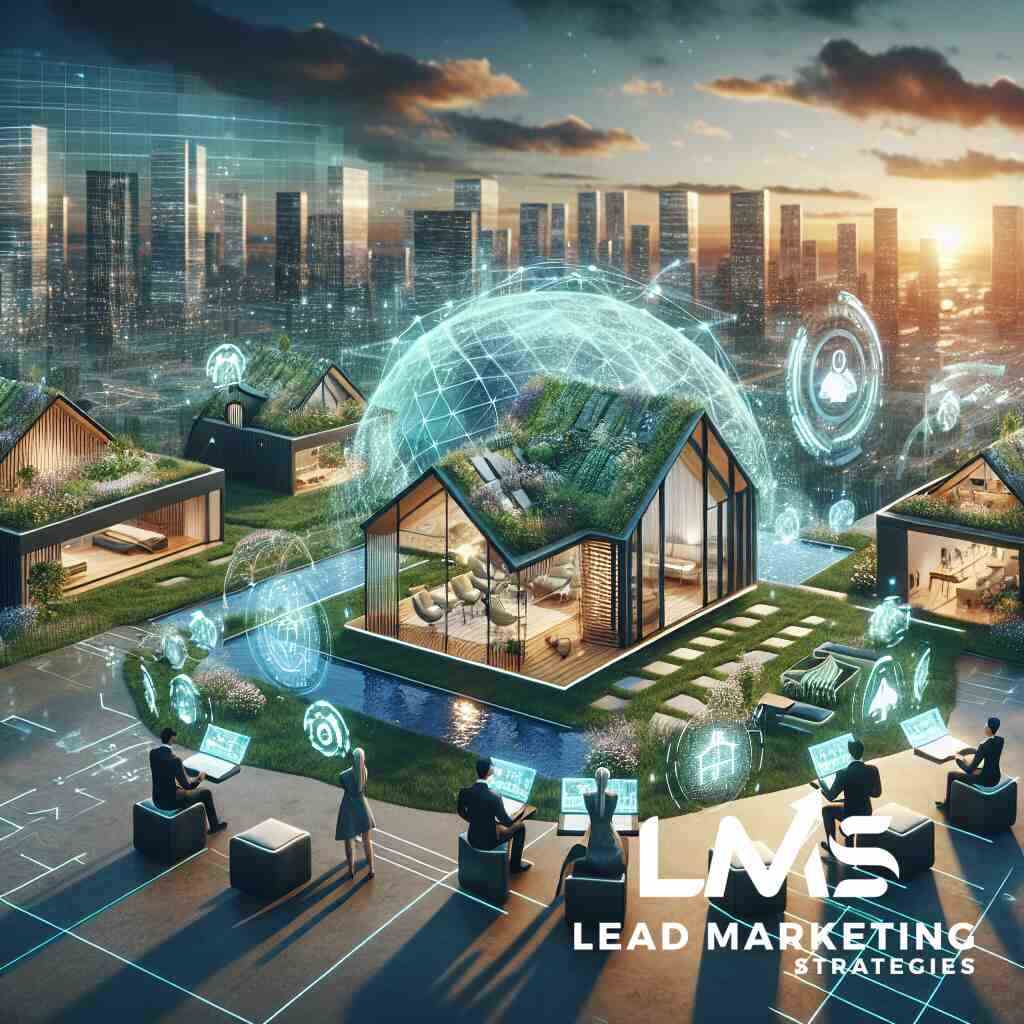
Conclusion: The Road Ahead for 2025 Strategies
Integrated Marketing Solutions: Bridging Tradition and Innovation
As we transition into 2025, integrating new technologies with traditional real estate marketing strategies is essential. Emphasizing integrated marketing solutions in real estate allows real estate professionals to create unified and seamless client experiences. This convergence harnesses the strengths of both traditional methods and innovative digital tools, forming a comprehensive approach that resonates with diverse buyer expectations. By effectively blending these elements, firms can enhance their visibility and strengthen their brand reputation, ensuring they remain at the forefront of the industry.
The Adaptive Real Estate Market: Navigating Change
Responding to the ever-changing landscape of real estate demands a keen understanding of market dynamics and the ability to adapt swiftly. Embracing adaptive real estate marketing is critical for firms to maintain relevance in a competitive environment. This strategy involves continuously analyzing current trends and anticipating future shifts, allowing for strategic adjustments that align with consumer behaviors. Real estate professionals adept at navigating these changes can proactively meet client needs, sustaining growth and capturing new opportunities in a shifting market.
Immersive Real Estate Marketing: A Vision for Tomorrow
Incorporating immersive technologies into real estate marketing strategies is not just a trend but a significant advancement for future success. By utilizing tools such as virtual reality property tours, firms can provide engaging and interactive experiences, allowing potential buyers to explore properties anywhere. This approach not only enhances buyer engagement but also distinguishes firms in a crowded marketplace. As technology continues to evolve, immersive marketing will play a crucial role in shaping how real estate is marketed, offering unprecedented opportunities to captivate and convert potential buyers.
Frequently Asked Questions
Question: How does Real Estate Marketing Strategies utilize digital marketing in real estate to adapt to changing consumer behavior?
Answer: At Real Estate Marketing Strategies, we harness the power of digital marketing in real estate by employing advanced tools and innovative solutions that provide deep insights into real estate consumer behavior. By leveraging technologies such as AI in real estate marketing and property data analytics, we can predict and respond swiftly to market trends and consumer demands. This adaptive real estate marketing approach ensures our clients remain competitive while effectively engaging with buyers. The integration of digital marketing with real estate tech integration allows for more personalized marketing campaigns, leading to increased buyer interest and successful transactions. Exploring Real Estate Marketing Strategies in Digital Era
Question: How can predictive analytics and real estate trend forecasting help shape future real estate strategies in 2025?
Answer: Predictive analytics and real estate trend forecasting are pivotal in shaping future real estate strategies. They provide insights into anticipated market developments and consumer preferences, allowing for strategic planning tailored to the 2025 property trends. Real Estate Marketing Strategies utilizes these insights to craft marketing strategies that resonate with evolving buyer demands, enhancing real estate agent lead generation and property management SEO. By harnessing these tools, our clients can anticipate and adapt to shifts in real estate consumer behavior, ensuring their marketing efforts remain relevant and impactful.
Question: In the blog Understanding How Real Estate Trends Shape 2025 Strategies, what role does sustainability play in real estate marketing?
Answer: Sustainability is increasingly important in real estate marketing, as highlighted in the blog Understanding How Real Estate Trends Shape 2025 Strategies. Buyers are now seeking eco-friendly properties, making sustainability a key focus in our marketing strategies. Real Estate Marketing Strategies promotes green building trends 2025 by emphasizing eco-friendly features such as energy-efficient designs and smart home technologies. This approach attracts environmentally-conscious buyers and enhances property sales content marketing. Our commitment to sustainability aligns with future homebuyer preferences, providing our clients with a competitive edge in the marketplace.
Question: How does real estate market globalization influence marketing strategies at Real Estate Marketing Strategies?
Answer: Real estate market globalization opens new horizons by broadening market reach and creating opportunities to cater to international buyers. Real Estate Marketing Strategies integrates neighborhood real estate marketing with a global perspective to appeal to a diverse audience. Our property listing digital marketing and targeted real estate advertising strategies are designed to attract cross-border investments. By adapting our messaging to suit cultural nuances and using innovative technologies like virtual reality property tours, we ensure our clients’ listings are compelling to global buyers, ultimately increasing their market share and enhancing engagement.
Question: How does immersive technology enhance real estate marketing, and what benefits does it offer?
Answer: Immersive technology, such as virtual reality property tours, significantly enhances real estate marketing by providing potential buyers with engaging and interactive experiences. At Real Estate Marketing Strategies, we leverage these tools to offer immersive real estate marketing that goes beyond traditional methods. This interactive approach allows buyers to explore properties from anywhere in the world, adding a new dimension to property viewing. The benefits include heightened buyer interest, increased reach, and the ability to captivate tech-savvy customers. By integrating these technologies, our clients can set new standards in luxury home marketing, strengthening their brand and driving successful sales.
